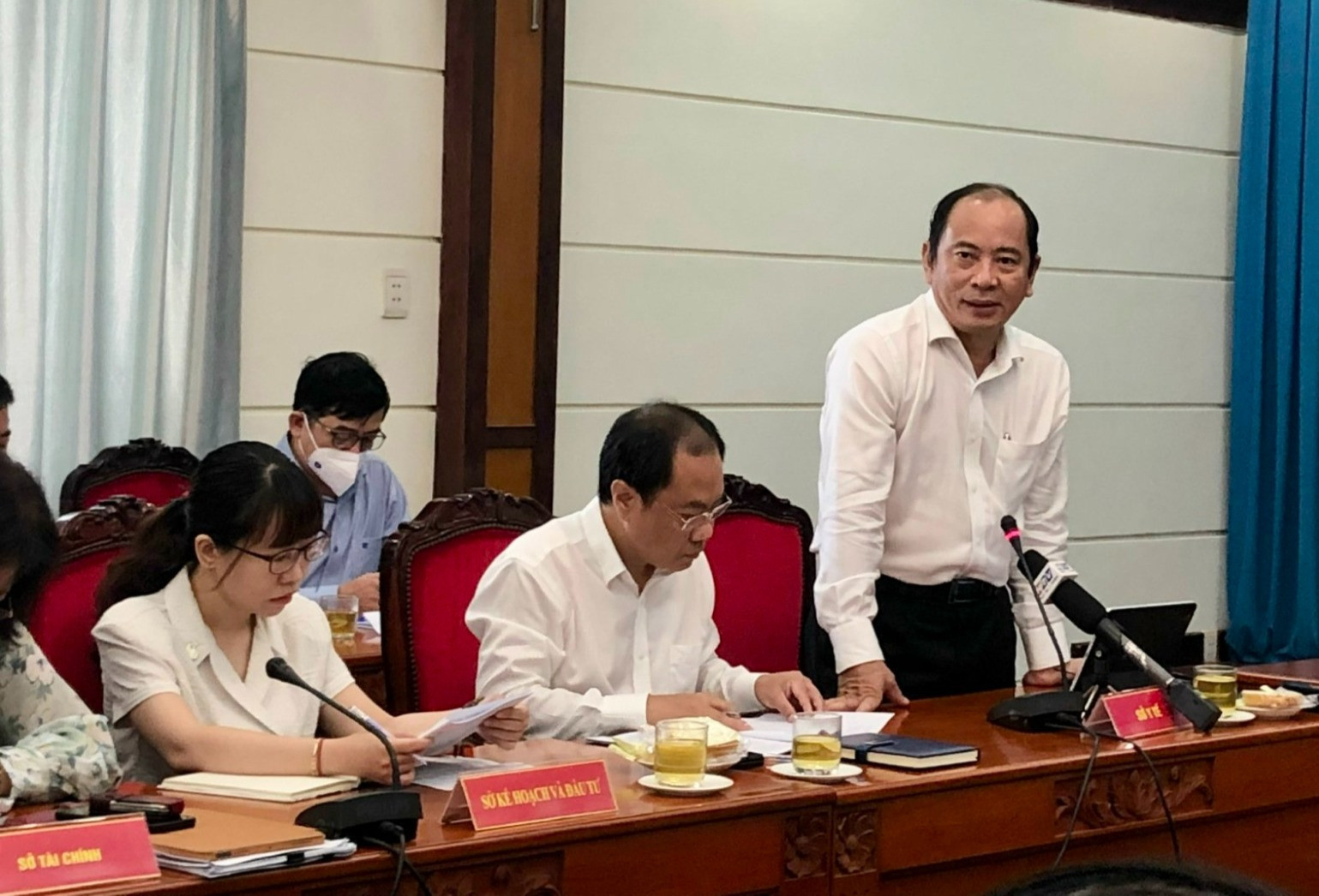
The HCM City Delegation of National Assembly Deputies recently had a working session with the HCM City Health Department, 25 hospitals, relevant departments, and HCM City Social Insurance Agency on the autonomy policy for hospitals and bidding for drug, equipment and materials.
Tang Chi Thuong, director of the HCM City Health Department, said the health sector still has not fully recovered after Covid-19. Many medical workers in the city have quit their jobs, and resignations still continue.
Regarding private investment in the health sector, Thuong said the HCM City Health Department supports this for healthcare activities.
“We use the most understandable image when talking about 'socialization' (privatization) - an airplane. Things need to be done so that both the rich and the poor can fly on the same modern plane,” he said.
Private facilities
Nguyen Anh Dung, deputy director of the HCM City Health Department, said it is necessary to encourage private investors to build more private hospitals to satisfy people’s demand, and at the same time attract private investment for medical examination and treatment activities at state medical establishments.
“Consider this an additional resource to satisfy people’s increasingly high demand for healthcare that the state budget still cannot meet,” he said.
However, he said that private funding needs to be done in a way to ensure transparency, fairness, sustainability, efficiency and harmonious benefits for all involved parties.
Dung said the framework prices for medical examination and treatment services must be the same, and only prices of non-medical services such as sickrooms, canteens, motorbike parking, washing, and more can be different.
Dung said if a medical examination and treatment facility is a "plane", then basic air ticket prices must be the same.
“There are business-class seats. In addition to basic services, people can choose additional services, depending on their financial capability,” he explained.
HCM City's nursing shortage
Dung warned that the ratio of nurses to physicians at some public hospitals is decreasing, affecting the quality of care.
Hospitals have complained they face difficulties recruiting new nurses to replace nurses who have resigned.
To ensure adequate care for patients, there should be three nurses and/or midwives to one physician.
However, a survey has found that the ratio is 1.86 in HCM City, and more than 55 percent of clinical departments have a ratio below 2.
The problem is that current policies are not reasonable and not deserving of the hard work of nurses and midwives. There is no reasonable policy designed to retain good practitioners.
Also, it is difficult to upgrade the qualification standards for nurses and midwives to a junior college degree.
The health department has proposed adding the title of "nursing assistant".
Nursing assistants help wash patients, clean blankets and sickbeds, and help patients eat, move, go for tests, and do other tasks.
Depending on the training model, nursing assistants can also be assigned to take patients' vital signs, receive initial information, and evaluate height and weight indicators.
In Vietnam, a nurse does all of these things.
“In some places, there are up to 70 patients within an evening butmedical workers, healthcare sector, nurse shortage, there are only three nurses, so they have to work very hard,” Dung said.
Linh Giao